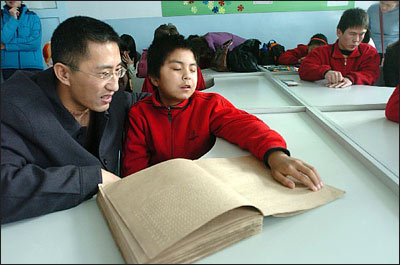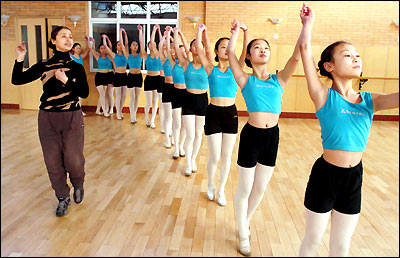In China, the government has always attached importance to special education. A series of laws and regulations ensures disabled people's right to education. Besides schools for special education, any disabled children capable of adapting to regular study conditions can enroll at standard elementary and high schools.

By the end of 2005, China had 1,593 schools for special education, with 364,000 students; 1,078 vocational education and training institutes for disabled people and 2,257 standard vocational training institutes admitting 570,000 disabled people; and 145 secondary vocational education institutes with 11,259 students. Since 1979, more than 30,000 disabled people have been enrolled in ordinary colleges and universities. In 2005, of disabled children receiving special education, 62.1 percent of total recruitment numbers and 65.4 percent of enrollment were in ordinary schools or special classes thereof.

The Law on Vocational Education was issued in 1996. Vocational education embraces higher vocational schools, secondary technical schools, technical schools, vocational high schools, pre-job training centers and other adult skill schools and social training institutes. So that the sector can better meet the needs of economic restructuring and urbanization, in recent years the government, with employability as priority, has remodeled vocational education, focusing on two major vocational education projects to satisfy society's ever more acute demand for high-quality, skilled workers. These are cultivating skilled workers urgently needed in modern manufacture and service industries; and training rural labor moving to urban areas. To accelerate vocational education in western regions, the Central Government has used government bonds to build 186 vocational education centers in impoverished western area counties.
